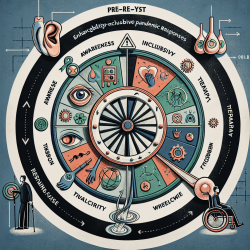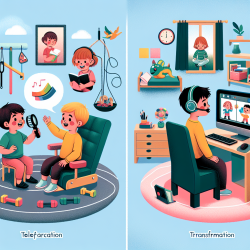Introduction
At TinyEYE, we are passionate about leveraging data-driven insights to improve therapeutic outcomes for children. A recent study, "Use of patients’ unsolicited correspondence to a family doctor to describe and understand valued components of a doctor-patient relationship: A Hermeneutics approach," offers valuable lessons for practitioners aiming to enhance their patient relationships. This blog explores the key findings and provides actionable insights for improving therapeutic interactions.
Key Findings from the Research
The study analyzed 107 unsolicited letters written to a family doctor over four decades. The analysis identified six key themes that patients valued in their doctor-patient relationships:
- Quality of Care: Patients appreciated comprehensive, continuous, and attentive care.
- Competence: Medical expertise and professionalism were highly valued.
- Physical Presence: Being available and attentive during consultations mattered to patients.
- Positive Personal Traits: Kindness, patience, and understanding were frequently mentioned.
- Emotional Support: Providing moral and emotional support was crucial.
- Spiritual Impact: Some patients appreciated a deeper, more holistic approach to care.
Practical Applications for Practitioners
Based on these findings, here are some actionable steps practitioners can take to improve their relationships with patients:
- Prioritize Quality of Care: Ensure that each interaction is thorough and personalized.
- Show Competence: Continuously update your medical knowledge and skills.
- Be Present: Make an effort to be physically and emotionally available during consultations.
- Exhibit Positive Traits: Cultivate kindness, patience, and understanding in your practice.
- Offer Emotional Support: Be a source of comfort and reassurance for your patients.
- Incorporate Holistic Care: Consider the emotional and spiritual needs of your patients.
Encouraging Further Research
This study highlights the importance of understanding patient perspectives to improve therapeutic outcomes. Practitioners are encouraged to conduct their own research and gather patient feedback to continuously refine their approach.
To read the original research paper, please follow this link: Use of patients’ unsolicited correspondence to a family doctor to describe and understand valued components of a doctor-patient relationship: A Hermeneutics approach.










